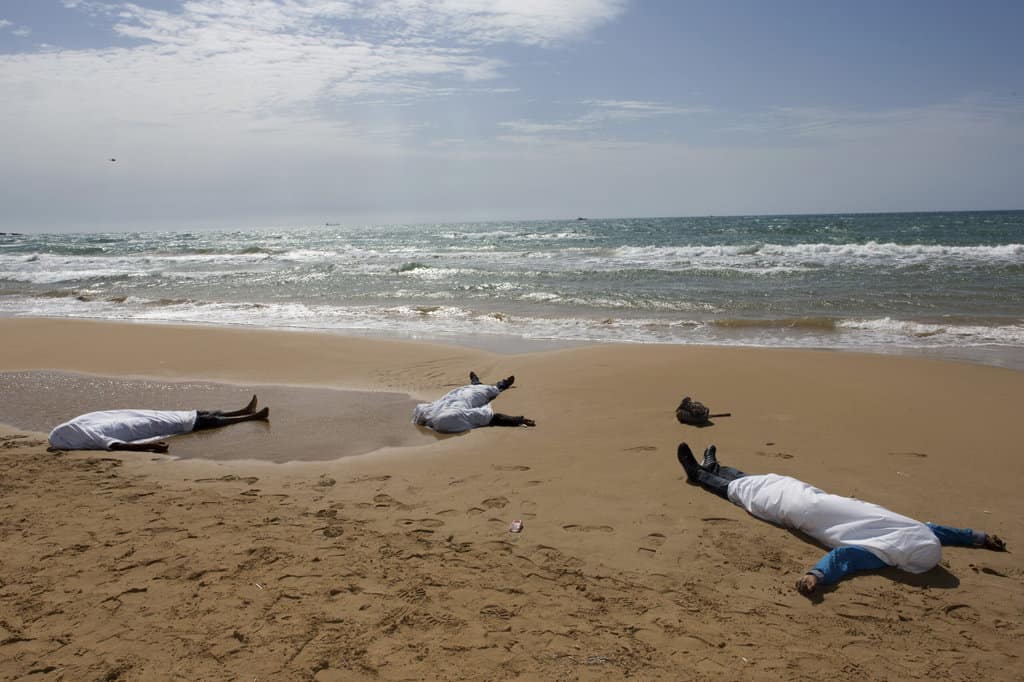
Photo: REUTERS/Gianni Mania
There’s hardly more welcome feedback than when I’m told that I have found the words someone is looking for to express an opinion they might feel in their gut but haven’t elaborated enough to mouth it.
Reading comments on social media during the televised and vain search for five passengers of a submersible not far from what is left of the wreck of the Titanic I felt the opposite effect. People were saying what I was feeling, and I felt that sort of empathy that reminds you that you are not mad for thinking certain things.
Many people contrasted the attention and the reaction to the loss of these 5 souls at sea with the indifference to the loss of many more in nearer waters on a near daily basis. So many harsh comments full of hate that are said about migrants lost at sea could have been, equally cruelly, applied to the millionaires who last their lives last Sunday.
‘They were asking for it.’ ‘Why should a parent take their child on such a perilous journey?’ ‘They ought to have stayed home. If they did, they wouldn’t be lost at sea.’ ‘Their irresponsible behaviour is costing so much in search and rescue resources.’ ‘The vessel they got in was so obviously unsuitable for the journey. Why did they board it at all?’
I listened to Emily Maitlis on the News Agents podcast premising her comment with the admission that ‘whataboutery’ is not normally a rational way of putting an argument. Reacting to the drama of looking for the drop in the bottom of the ocean where people still hoped to find five men cooped up in a cylinder slowing their breathing and banging on the thin hull of their shared coffin with the rhetorical device of ‘what about all the migrants?’ smacks of unhelpful whataboutery.
But then you can’t ignore the grotesque inequality in the consideration of the relative importance of life. You don’t have to suggest no one should have cared for the loss of 5 millionaires at sea, to argue that at least the same energy, the same commitment, the same concern, the same thoughts and prayers, should apply to every life at the risk of perishing at sea.
The 5 millionaires used up more money than most people would spend in a lifetime for the bland purpose of exceptional tourism. They wanted to see the century-old graveyard at the bottom of the sea where Titanic, the historic symbol of the hubris that comes with too much money and the humbling and inevitable smacking response of the gods, came to rest.
The capricious purpose of their fatal endeavour should be an irrelevant consideration in the effort to rescue them if human life is truly sacred. And yet, even if logically fallacious, how can one avoid comparing the risks taken to go to the bottom of the ocean to visit a wreck just because most other people cannot do it with the risks migrants take to escape war and hunger in pursuit of a relatively less indecent life?
How can one not compare the energies spent by the navies of several countries to look for the submersible lost in the ocean on Sunday with the callous indifference in the military headquarters where phones ring hoping to report the location of migrants in distress at sea and are left unanswered?
How can one ignore the simple fact that whether we like to admit it or not the lives of white millionaires are worth more of our time, attention, and sympathy than the lives of brown or black migrants with nothing more than the shirt on their back?
It is good form to express sadness at the loss of those 5 lives but it is also inappropriate when so many hundreds are lost, and no sadness is expressed.
There’s a picture of me somewhere holding up a poster that says ‘all lives matter’ when I participated in a well-meaning campaign asking for the lives of people in distress at sea to be rescued. I squirm at the memory of it now. Despite all the well-meaning it is moments like this week’s incident that remind me how atrocious that slogan – all lives matter – is. It is a response to ‘black lives matter’ and it could be a response to ‘the lives of poor people matter’, ‘the lives of refugees matter’, the lives of the voiceless matter.
It is a response to insist that even the lives of 5 privileged millionaires matter. Of course, they do. But privileged millionaires don’t need campaigners to speak for them. When they’re lost all the coast guards of the world will come out to look for them. It’s the people those coast guards allow to drown that need speaking for.